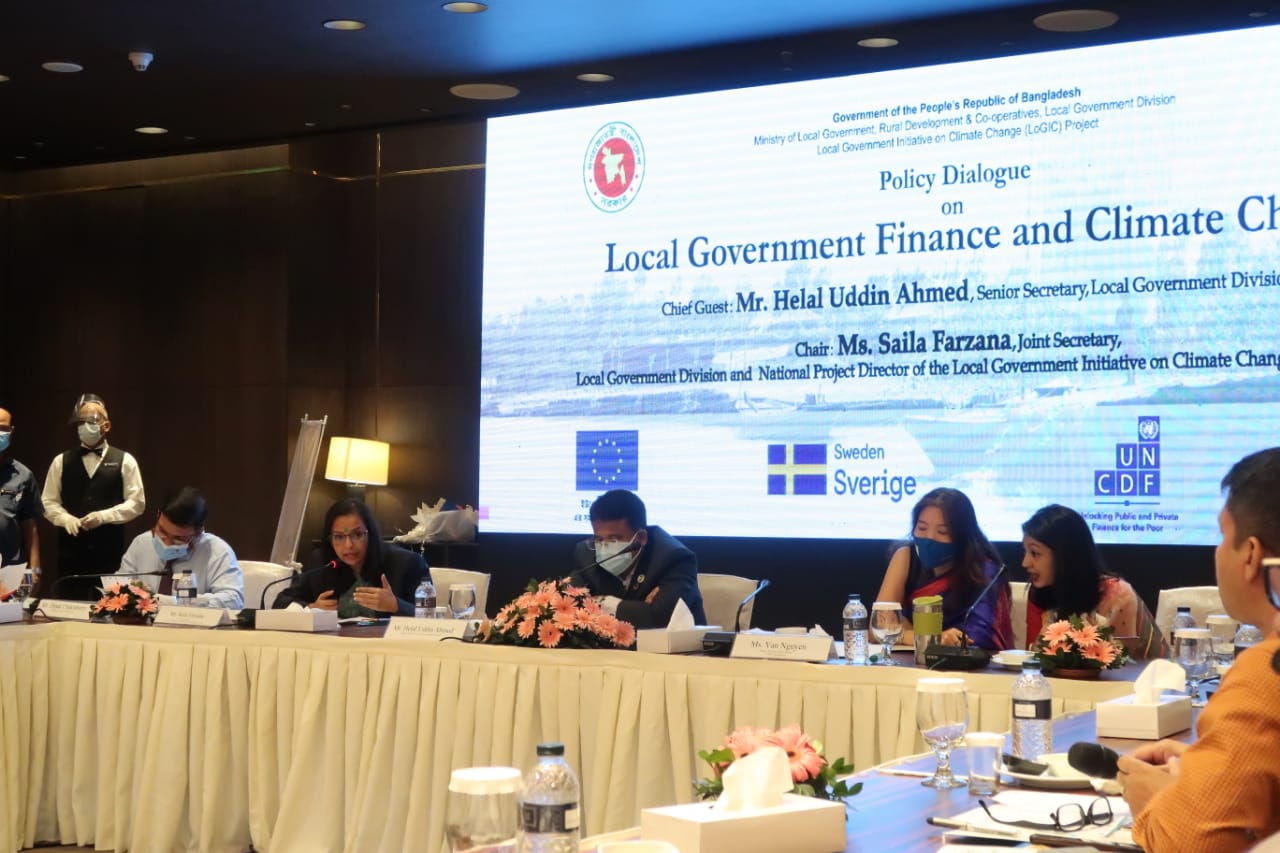Staff Correspondent
Published:2020-10-22 19:45:19 BdST
Govt to rejig climate budget allocation policy
The local government division is going to form an inter-ministerial working group to revise the existing policy on climate change budget allocation to different areas.
In the current system, the allocation goes to a place based on the size and population of that area, not based on the need of the people.
For that, Savar gets more allocation than the southern river island Char Montaz. But the population of Char Montaz is more vulnerable than the people of Savar, Saila Farzana, a joint secretary of the local government division, said after a policy dialogue on Wednesday.
“Our Senior Secretary has agreed in principle that this system has to be changed. We will now work on that,” she said, referring to Senior Secretary for Local Government Division Helal Uddin Ahmed who was present as the chief guest at the policy dialogue.
"We'll form a working group with the members of different relevant ministries," she said.
The Local Government Initiative on Climate Change (LoGIC) Project organised the dialogue with the officials of different ministries.
Saila Farzana is the national project director of LoGIC which works for the vulnerable people in coastal Bangladesh.
Bangladesh is one of the most vulnerable countries in the world to climate change impacts. During the last three decades, population census data indicates that the density of population in climate prone areas has been reducing, mainly due to the shrinking livelihoods options and increasing damage or loss from climate induced disasters.
The LoGIC project, which is funded by donors including the UNDP, EU and SIDA, is unique in the sense that it aims at enhancing the capacity of the vulnerable communities. This approach prevents people from internal migration due to climate change.
The project established a financing mechanism to fund local governments and communities for implementing climate change adaptation measures so that they can live in their own districts.
The project will end in 2022. The local government division is also working on how to implement the lessons learnt from the project across the country even after 2022.
“Bangladesh is at the cross-road of development,” Deputy Resident Representative of UNDP Bangladesh Van Nguyen said, adding that the success story of the development would depend on the effective management of climate change.
“But one size does not fit all,” she said, stressing on need-based allocation. “Every location is different. So we need to be responsive to those differences”.
Senior Secretary Helal Uddnin Ahmed thanked the development partners for the programme.
He reiterated that Bangladesh is constantly exposed to a range of natural disasters. However, the government has made large strides to tackle climate change through infrastructure, capacity building which includes establishing cyclone shelters in the coastal belt which can be used for other purposes.
He said due to the proactive efforts of the government’s different ministries, the fatalities and damage has reduced over the years.
“We have to ensure migration doesn’t happen. We need to ensure shelter and livelihood to limit migration,” he said.
Unauthorized use or reproduction of The Finance Today content for commercial purposes is strictly prohibited.


